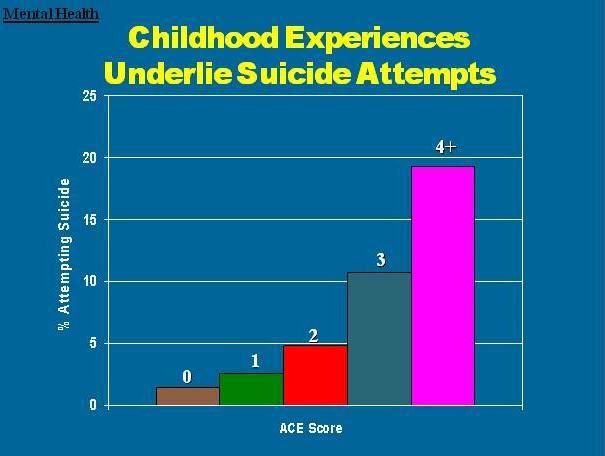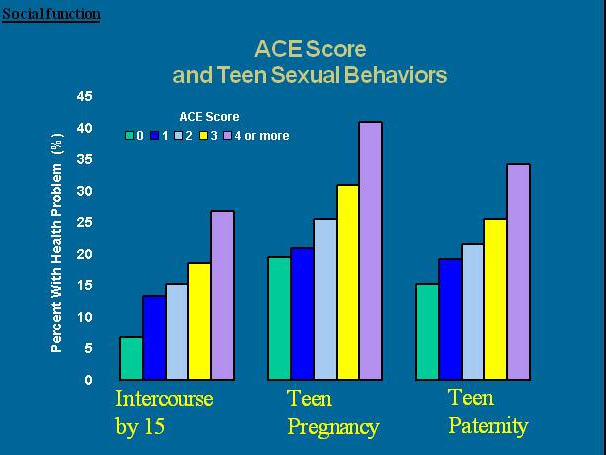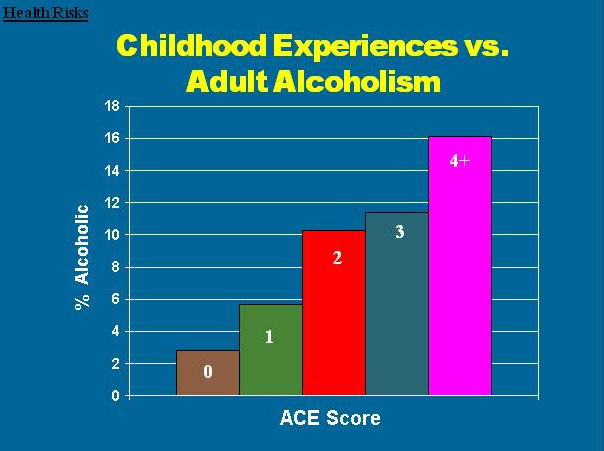Hi everybody,
I am fortunate enough to have healthy children under 10 years old. What suggestions do we all have to give them a long, healthy, happy future?
Some of mine:
-
Test for Lp(a) and cholesterol levels. (I have a genetic high cholesterol and at least one of my children also has it). Current advice is that everybody should test Lp(a) at least once. If you start early, basically nobody should ever develop advanced ASCVD.
-
They take DHA (250 mg) and vitamin D (500 IU) supplements. We also make vegetable smoothies etc to top up micronutrients.
-
We try to provide an environment with a balanced diet. I don’t believe in being religious about banning Mcdonalds or chocolate, or in forcing them to eat vegetables. IMO, putting ideological or moral judgment isn’t helpful, and they’ll discover junk food from friends and other households anyway. Instead, we try provide a varied diet and try to instil healthier eating habits, period. We don’t force them to finish a plate if they’re not hungry. We don’t use snacks as a treat or a reward (thus hopefully they don’t interpret a chocolate bar as something inherently rewarding/desirable).
-
Sun protection (hats, clothes, sunglasses, sunscreen) when going outside. I’ve seen teenagers and young adults with that leathery skin already.
-
Engaging in plenty of sport to develop different skills. Ballet, gymnastics, martial arts, team sports etc. From what I’ve heard, those skills of balance, co-ordination etc can be built and last for a long time.
-
I’m very curious about mental health. One of the biggest killers of young adults is themselves by suicide. As a professor, I see a significant proportion of young adult students with a variety of anxiety, depression, poorly controlled bipolar disorder. Many are not able to cope with stress of academic life, have breakdowns etc. There is some lack of resilience in many of them, and I’d like my kids to not have that. From what I’ve read, this is strongly related to the bonding and security they feel from parents. If they have parents support in young childhood, they will tend to be less anxious and depressed in the future.
However, I’m not an expert and I’d love to know more.
7 Likes
You seem to have a great list to start. On the mental health side of things, I’ve read a lot of Carol Dweck’s works and I think you may find them of interest. She has a book out too and a website focused on “Growth Mindsets”. I recommend you check them out. The emphasis is to get away from judging the children on their accomplishments (which leads them to value their self worth via many factors that are beyond their control, and thus very fragile) and towards focusing on things the children do have control over, the effort they put into something, their persistence and creative problem solving, etc. This should make them more resilient as adults, less prone to anxiety, stress and depression when things don’t work out as planned (as they frequently don’t).
https://fs.blog/carol-dweck-mindset/
5 Likes
The supplements I use for my children are as follows:
To treat deficiencies:
- Vitamin D3 5,000 IUs
- Omega-3s (1 g)
- Magtein Magnesium L-Threonate (2 g)
- Vitamin B12 (Methylcobalamin) 2000mcg
- Lithium Orotate (5 mg)
For my son with poor eyesight:
- Lutein and Zeaxanthin
For my overweight son
- Turmeric (to prevent diabetes)
Once they hit puberty (16+) I’ll introduce Creatine Monohydrate (5 g) to help with studies and sleep deprivation.
That should be it until they turn 30 yo.
5 Likes
Beth
#4
I don’t have children, so grain of salt……
Regarding your #6, I realize how hard it is when they need to keep up with their friends, but from what I’ve seen and heard, having them on social media is the single worst thing that they can do for their mental health. I know plenty of kids who have outstanding supportive and secure relationships with their parents and all the therapists money can buy who have depression and eating disorders, so do what you can, but it’s sadly not always enough. Heck, I even know adults who divorced due to being influenced by the fake posts of friends who purport to have perfect lives.
@RapAdmin to your point/post… ah yes, I have a particular friend who is an uber successful person in the Bay Area, and I see how focusing on accomplishments can mess with ones’s sense of self worth. The kids already know they can never be as smart/successful as their dad and they are starting out in this world already feeling deflated with an immense sense pressure from that fact. The kids have no idea how much they have and their parents don’t place any pressure on them, but they still feel it.
5 Likes
KarlT
#5
Tough question to answer. There is not a lot of data on any of this in humans, significantly less than that in children. Could any of these common supplements be harmful? Certainly possible.
Also - work hard to protect the kids from major stresses, like divorce, serious violence, etc. Read up on this thread (bottom of this post) and research Adverse Childhood Events, which are key factors in problems related to mental health and suicide risk:



https://www.acesaware.org/learn-about-screening/screening-tools/
https://www.ucsf.edu/news/2019/12/416111/california-selects-ucsf-trauma-screening-tool-statewide-initiative-combat
3 Likes
A_User
#7
I think I would basically do nothing special because it’s likely most things are either genetic or random chance (as long as it’s a pretty normal childhood). ACE’s have genetic confounding (i.e a parent going to prison).
I haven’t scoured the literature on this, but identical twins in separate homes turn out pretty much the same. So this should reduce anxiety about parenting.
1 Like
The supplements IMO, are a very small piece of the puzzle. The way I see it, we don’t eat as much fish and leafy greens as I’ve probably like to, and we protect them from the sun - so DHA, magnesium, vitamin D are like filling the gaps. And they’re all at very conservative doses.
Thanks @RapAdmin for the very insightful links. I’ll read through them soon. I agree absolutely that trying to prevent any sort of trauma is critical. When I see students (in my case, adults - postgrad students) suffering from problems, a lot of them seem to be from “bad” families, so that list makes perfect intuitive sense to me.
That’s an interesting perspective, and I do think a lot of it is genetic. Like, you can have one kid very shy and another very outgoing. Last I heard, it was about 50% nature, 50% nurture.
2 Likes
Get kids used to eating healthy foods instead of the fun stuff like fries with ketchup. Did a way to make it fun like fast food, pizza, etc. And make physical activity a normal part of life: get involved in sports for the fun of it (not for the medals). Team sports is best but all physical activity is good. This sets up an easier transition to a healthy lifestyle when they choose to go there.
I’d also limit cell phone and TV usage. Freedom within limits until they develop the capacity to make good decisions on limiting addictions to “entertainment”.
The main thing is I wouldn’t normalize the idea that taking pills is an alternative to a healthy lifestyle.
9 Likes
Beth
#10
I was just watching Scott Galloway and was reminded about your question (not everyone likes or agrees with him, but I love him).
He was talking about not being a bulldozer parent and how letting your kids fail builds resilience. From seeing the various parenting styles of those close to me, I wholeheartedly agree with this.
@Joseph_Lavelle I’ve heard a great way to make healthy food fun is to have the kids grown some of their own food.
7 Likes
Yup. Let them have their own problems and find ways to overcome them themselves. If you step in too much, you’re stealing their self confidence to build your own.
Another big thing is to have them observe you facing difficulties with calmness and non-reactivity. They learn more through observation than through lectures or stepping in.
Exercise is the best supplement. Help your kids learn to view exercise as an inescapable habit like brushing their teeth.
8 Likes
Dr.Bart
#12
We didn’t do anything with my kids. I think I would just turn them in to hypochondriacs if we tried.
We show them with our healthy habits.
Put them in good school so they don’t end up with bad influence peers.
Focus on yourself (selves)
Don’t smoke or drink to excess.
Exercise, eat well, take care of sleep, etc.
If you live a long an healthy live, eventually they will get it, trust me.
Never attempt to indoctrinate your children, it will just backfire when they turn teenage years.
Allow them to make mistakes.
Let them figure it out.
I got 2 boys in good colleges, one doing pre-med and other engineering.
Both shied away from drugs, they tried some pot and alcohol and decided is not for them.
They eat relatively healthy, exercise and are slowly discovering the value of sleep.
Both take care of their teeth, use sunscreen and facial creams, etc.
I have to say, it was pretty effortless - monkey see monkey does.
Also they learn how to cook from us and often cook for themselves.
6 Likes
I agree. However, at least one of my kids has familiar hypercholesterolemia, so some amount of interaction with the healthcare system (blood tests, taking medication) is required. My approach is to basically treat this like a constant thing; nothing dramatic. Some parents over-medicalize, and others are scared/superstitious/suspicious of medical care.
Very good point. I think there’s a balance. The bulldozer parent never lets their kid experience failure, but the neglectful parent doesn’t make their kid feel like they could accomplish anything.
Growing food is also a really nice idea!
And thanks for the solid advice @Dr.Bart Totally agree with that approach.
3 Likes
I’ve enjoyed reading people’s perspectives on raising children in light of “longevity.” It has me reflect on my own upbringing in the 50’s/60’s. Environmentally my generation dealt with lead in gasoline, DDT (I remember being in Key West and being bathed in fog from an airdrop on our location), margarine (hard transfats) to name a few. I suppose the current ones would include plastics and misinformation.
#5 - Sports activities also had me reflecting. The team sport activities I did never really advanced into my adult life (tackle football for example). But the sports/activities I currently do to this day are the ones we did as a family. - Downhill skiing, sailing, hiking, camping. (I didn’t do tennis but my sisters did and they currently do that). My understanding of current team sports is that it is highly coached with training that contributes to a huge industry of specialists. Given the expense and time commitments, I think building certain things in their outdoor environment like a basketball hoop, cornhole, etc for spontaneous play might deliver some of the benefits you seek for your children. (I forgot one of those 1960’s activities my generation had - AVOID Lawn Darts! 
7 Likes
I love the Dweck recommendation. I will also add, how to deal with difficult people and nonviolent communication.
1 Like
Seems people should start really early with things to maximize lifespan of their children (though of course this research is early, and preliminary)…
2 Likes
A_User
#17
ADHD is genetic, not environmental, heritability at 80% or higher, so the same for height or schizophrenia.
Some people not wanting to work with numbers and computers does not mean it’s ADHD, they just need stimulants to do that work (“Computers are fundamentally Depressing” - 00:03:50 of 01:02:00).
1 Like
Beth
#18
As someone with ADD, I was bumming out, but I’m glad I read the article because, for me, it’s not as bad as the headline sounded, whew.
I had not heard ADD might be related to sleep issues!!! I had decades of poor sleep until my beloved rapa came into my life, but hopefully I can make up for lost sleep now.
“Barkley’s study found that the biggest predictors of shorter life expectancy in adults with ADHD were factors including lower incomes, fewer years of education, a greater likelihood of smoking, shorter sleep duration, less exercise, poorer nutrition and risky driving. He notes that most of these factors are linked to impulsivity — which can be treated.”
2 Likes
No, I don’t think thats true. The only truly “genetic diseases” are things like Fragile-X, Huntington’s’, Duchene muscular dystrophy, etc. Everything else - from ADHD to Schizophrenia is genes + environment. As they say, genes load the gun, environment pulls the trigger…
See: Genetic Disorders: What Are They, Types, Symptoms & Causes

See: Schizophrenia.com - Preventing Schizophrenia, Risk Reduction
7 Likes
A_User
#20
But if you don’t have the genes you really can’t get it, in the graph above it’s at 1%, while identical twins it’s at 48%, a 48x difference.
So if you have a high polygenic risk score, then of course avoid certain things to decrease risk as the base rate risk is already high.
1 Like